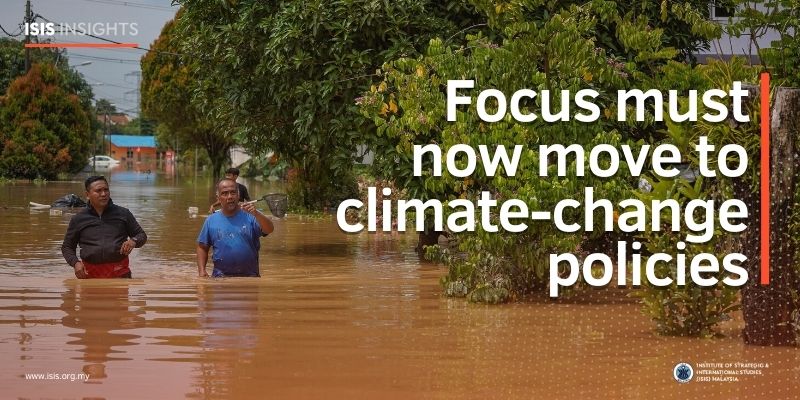Nation can no longer ignore ecological disaster, climate crisis
MALAYSIA now has a prime minister and cabinet. The formation of a government, however, might have distracted us from the 27th Climate Change Conference (COP 27) in Egypt, which ended on 20 November. Many analysts and activists see COP 27 as falling short of expectations, despite incremental progress and a symbolic moment to establish a loss and damage fund.
Perhaps the best way to describe COP is that “the more things change, the more they stay the same”. Many meetings and landmark accords don’t change the deepening disparity between commitments and actions.
The world has warmed by about 1.3° Celsius and we will likely reach the 1.5°C threshold within a decade. The United Nations Environment Programme’s Emissions Gap Report 2022 stated that existing policies could lead to a 2.8°C temperature rise by the end of the century.
Malaysia continues to experience climate-related impacts, such as flash floods and debris flows (banjir puing). The impacts were often amplified by unsustainable development practices, such as uncontrolled logging and inefficient drainage.
But progress in science has warned that what we have seen is just the tip of the iceberg. With the window for action continuing to close rapidly, climate-change impacts are likely to worsen over the next few decades, impacting on our sustainable development trajectory.
This means, on top of addressing economic challenges in the next year, the new government needs to emphasise climate adaptation to cope with the adverse impacts of climate change.
Based on manifestos, climate change is a major agenda item. Yet no manifesto proposes long-term adaptation strategies. The focus is skewed towards decarbonisation and renewable energy, reflecting the vested interests in climate change at the international and domestic levels.
Because of political short termism, there is a tendency for a new government to focus on flashy “shovel-ready” initiatives but climate change and environmental degradation are systemic problems that demand making real, and often difficult, changes to policies and institutions, especially in environmental governance.
This could mean revising land use and urban planning processes and prioritising hard policy instruments and putting price on externalities, such as taxes and fines. One of many examples is putting a premium on high-risk development in environmentally sensitive areas, such as floodplains, to create market effects and fund local adaptation initiatives.
Perhaps it’s time to consider regulatory instruments to hold responsible parties liable and accountable. We are already seeing several cases of climate litigation this year related to Kuala Lumpur, Klang and Taman Sri Muda.
It won’t be easy because some of these reforms are politically sensitive and unpopular among lobbyists and those with vested interests. But it is necessary to protect public goods for collective welfare, and only a strong government and institutions can deliver this.
The government has already embarked on hard regulatory instruments, such as the carbon tax proposed by the water and environment minister and the zero-discharge policy by Selangor Water Management Authority (LUAS).
Since it’s a unity government, it will be intriguing and perhaps logical to combine proposals from across the parties. For example, Pakatan Harapan’s suggestion to increase the size of the ecological fiscal transfer to RM1 billion annually serves as the means to implement Barisan National’s policy to increase our national forest cover to 60%.
To achieve such aims, the coalition needs to focus on environmental and climate policies that every party agrees on and work with the opposition in a non-partisan manner. And effectively communicating these policies to the rakyat and other stakeholders about why these changes are important for Malaysia.
This will lay out the foundational principles and policy priorities as building blocks for Malaysia to reach its climate and environmental goals.
Ensuring policy continuity and improvement for the next five years and beyond, regardless of who will be in government, will strengthen implementation and boost confidence among businesses and investors.
Despite the political impasse post-elections, Malaysia is showing signs that our democracy is maturing. Our approach to tackling the climate crisis must reflect this through better policies.





